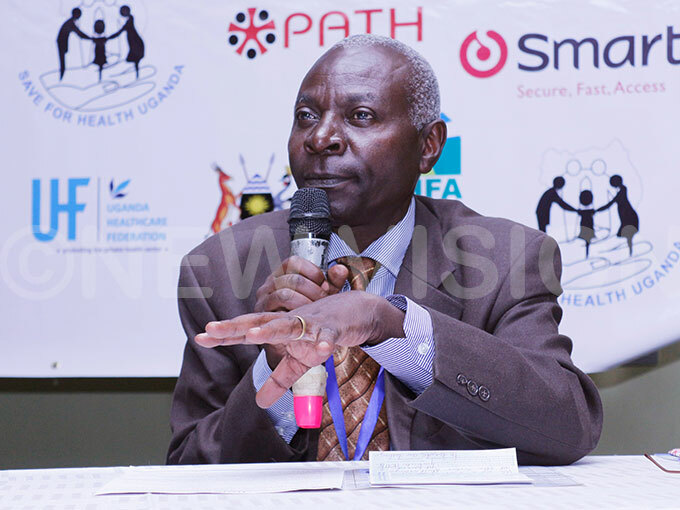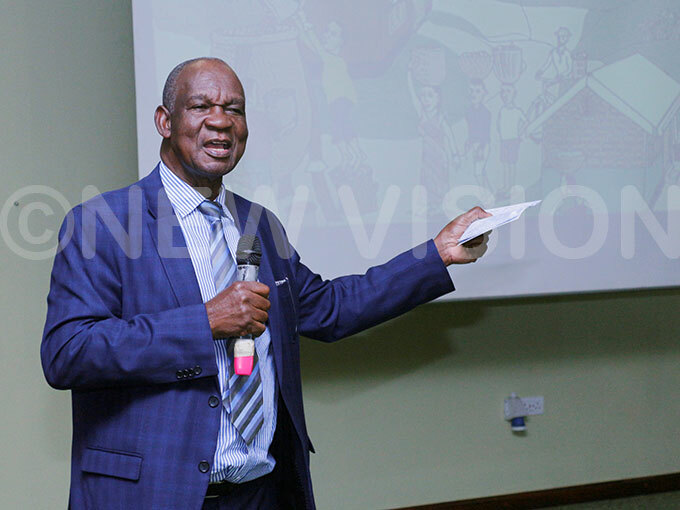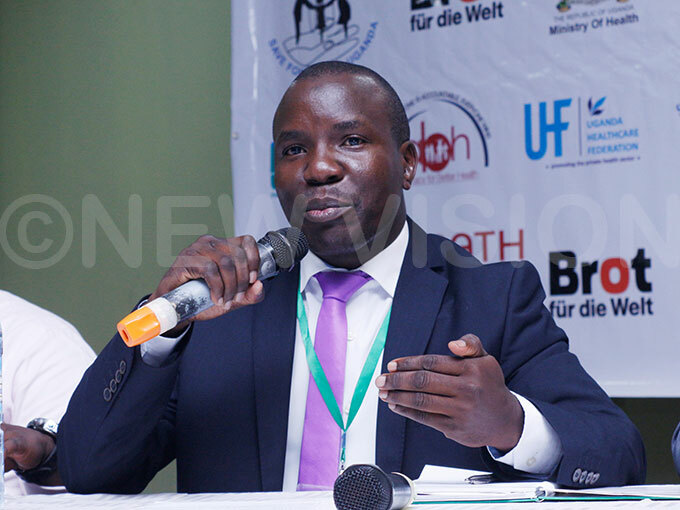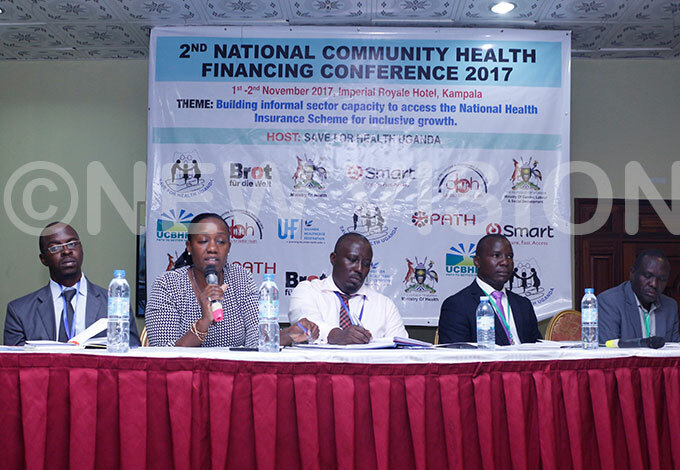Health insurance contributions must be affordable
Professor Francis Omaswa while arguing the national health insurance case noted that these must be valuable to the people.
HEALTH|INSURANCE
As efforts to roll out the national insurance scheme continue to take shape, different stakeholders are calling on government to ensure that contributions to this scheme are affordable for all.
The process that has since taken 13 years since the first draft (National Health Insurance Bill 2007) proposes a monthly contribution of 4% from an employee's earnings and another 4% from the employee.
Convened under the theme, ‘Building Informal Sector Capacity to Access the National Health Insurance', the informal sector which constitutes the majority of the population that has not yet been considered for the scheme.
 The chairperson of the Uganda Informal Sector Organisation Ben Asiimwe discussing at the conference
The chairperson of the Uganda Informal Sector Organisation Ben Asiimwe discussing at the conference
According to the chairperson of the Uganda National Informal Sector Organisation, Ben Asiimwe, unless this scheme is organised in such a way that appeals to the different people that constitute the informal sector, it might become challenging to bring these on board.
Asiimwe argued that the people in the informal sector need to be given a cost benefit analysis of subscribing to the scheme. These are a potential section of the population but rather tend to be sceptical on things that are not tangible.
Professor Francis Omaswa while arguing the national health insurance case noted that these must be valuable to the people. When the population, fails to attach value to a given scheme, they shun it instead.
 National Planning Authority boss Dr Kisamba Mugerwa presenting
National Planning Authority boss Dr Kisamba Mugerwa presenting
"We are tired of always going to funerals and comforting ourselves that it's God who has called the person and yet it is us that have failed them, has called her and yet it is us who have failed them.
Fredrick Makaire, the executive director of Save for Health Uganda, the conveners of the conference, emphasised that by ignoring the informal sector, government is leaving out the most vulnerable population. This however requires a deliberate effort to establish the different economic power.
"A uniform premium is rather unfair for the informal sector for instance given the uneven nature of their incomes. You also have to identify the vulnerable categories such as the elderly and other indigents," said Makaire.
The participants also proposed the need for a complaints management system in case the scheme is rolled out. With this people are able to express their dissatisfactions.
"People do not pay for health insurance per se, they pay for services. If they can't get those services or products, it becomes challenging to get them to contribute," said Makaire.
 Fredrick Makaire, the executive director of Save for Health Uganda making a presentation
Fredrick Makaire, the executive director of Save for Health Uganda making a presentationIn her argument, the former vice president and presidential advisor on health and population, Dr Specioza Wandira Kazibwe stated that health interventions if they are to make impact must be from the community level.
"The role of the ministry is to provide policy guidelines and regulation. But people have to be empowered to take charge of their health," she said.
While opening the two day workshop, the State Minister for Primary Health Care, Joyce Moriku Kaducu, argued that the National Health Insurance Scheme is a strategy that should be scaled up to include community health financing.
"With smart contributions of everyone, health insurance will be the next safety net available to the informal sector for inclusive growth," she said.

Despite the slow pace, the Minister argues that a number of milestones have been achieved. A roadmap has been presented to parliament and with that the health insurance scheme should be a reality.
The Bill in its current form according to Makaire doesn't not clearly stipulate how and when the informal sector will be enrolled on the scheme. However, the informal sector is already engaged in different community health saving schemes.
"We are trying to create debate around this population that is perceived to be non-responsive and yet they are the most vulnerable," he said.